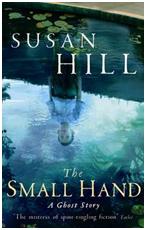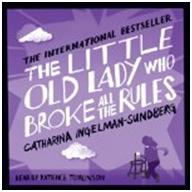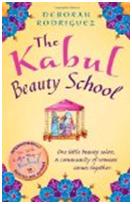
 Dear reader, just a warning. If you have not read the book and/or seen the play and you wish to do so, then read no further. A ghost story needs suspense and knowing what will happen removes that suspense.
Dear reader, just a warning. If you have not read the book and/or seen the play and you wish to do so, then read no further. A ghost story needs suspense and knowing what will happen removes that suspense.
I read the book, because I was about to see the play. The book is enjoyable, if a little short. And the play is suspenseful with lots of scary moments. However, the play and the book tell two different if not related stories. This I found very disappointing because when I went to see the play I was looking forward to seeing how certain parts of the story would be portrayed on the stage and certainly how the bittersweet ending would be handled. Instead a different ending was inserted and a different story told.
Adam Snow, antiquarian book dealer in quest of a first folio Shakespeare becomes Adam Snow, art dealer in quest of a rare and early Rossetti. The remote French monastery becomes a Scottish castle. The list goes on. The substitution of the Scottish castle for the monastery seriously changes the story. In the book, Adam goes to the monastery to view the Shakespeare folio, and in the process has two encounters with the small hand, both encounters nearly result in his death. For these sorry times, this story is a rarity, presenting Catholic monasticism in a positive light. Adam has found a sanctuary among the monks, who are will to offer support and a place of safety for as long as he needs. The abbot advises Adam that he has a choice, either to just accept this less than benign intrusion of the small hand into his life and hope that eventually it will move on, or he can "draw the sting". The choice is his. And of course, Adam chooses the latter and the story moves into the second phase.
As the book draws to its tragic conclusion, more and more the nature of the "ghost" becomes the focus. Adam recovers some of the past, his past, his childhood and he confronts his brother Hugo to discover the truth of a fateful afternoon when they were children. You are left with the question: is the deadly and malevolent spirit of the small hand really the ghost of a small child, or is it the personification of guilt, Hugo's guilt, for his actions that afternoon. "At eleven years old, one is still a child. I tell myself so" says Hugo. That may be so, but the guilt, that deadly secret remains active and grows like a cancer, all consuming. Hill has used this theme before, the theme that children are moral agents and are capable of good and evil (for instance in I'm the King of the Castle").
The change to the story in the play completely removes this and one wonders about the motives of the playwright, Catholicism, guilt, moral agency are excised and in its place is what? A weakened story. A pleasant, gently scary story that does not challenge. There is no mirror held up to our lives, making us think and reflect. And for this, the play is disappointing, it is ordinary and common place.
Recommendation
Read the book in one sitting.
Watch the play, it is entertaining but is not the story in the book.




